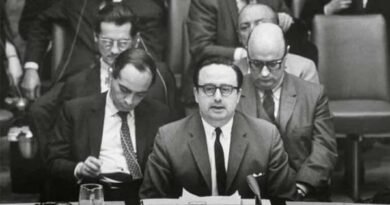Peronist Party in search of a new (or old) leader
[ad_1]
Peronist Party in search of a new (or old) leader
Quintela or CFK? Who will guide Peronism’s attempt at regaining power in Argentina?
After former President Alberto Fernández was forced to resign as chairman of the Peronist Party given the domestic violence and corruption scandals in which he is involved, the vacancy opened up a new front that may well decide the future of Argentine politics in the years to come. While former President Cristina Fernández de Kirchner intends to fill the void, La Rioja Governor Ricardo Quintela came forward as a new option.
My project is to lead a process of unity, argued Quintela, who gained notoriety in recent months after his province issued a bond commonly known as Chacho that has become legal tender in La Rioja and is now also accepted at face value in parts of Córdoba, particularly at the Dinosaurio supermarket chain. Riojan students attending college in Córdoba are sent these bonds by their families, it was explained. Deals with other companies to accept Chachos are underway.
In this scenario, Quintela underlined that there is nothing left here (among Peronists) so my project is to lead a process of unity, with everyone in it. Quinteka made these statements after CFK announced that she would be seeking to repair what has been twisted.
At any rate, Quintela said that if he wins the party elections he would like CFK to join forces with him.
CFK published a letter on social networks highlighting the need to address and order Peronism with an internal debate that rebuilds its strength and addresses new social demands.
As things stand, today Peronism only governs 5 of the 23 Argentine provinces and has lost its majority in the House of Senators; this being a situation of loss of institutional representation unprecedented in the democratic period, she noted.
I want to say that I am ready, once again, to accept the challenge of debating in unity because if there is one thing I am also clear about, it is that there is nothing left here. However, unity needs direction and a project to build the best possible Peronism in an Argentina that has become impossible for the majority of its inhabitants, she added.
It is clear that it is necessary to straighten what was twisted and order what was disordered. This raises the need to create an environment of discussion and participation that today does not exist and that its absence only generates confusion and emptiness. I have no doubt that, at this stage, the party is the most appropriate place to develop the continent that generates the content and that this, in addition, has direction and objectives, she also mentioned.
CFK also called the new generations in high schools, universities, trade unions, [and] social movements to recompose the presence in the popular neighborhoods together with churches, development societies, neighborhood clubs and all those institutions organized from the community.
The questions that arise are: How did we reach this unprecedented moment? Is it only because of the failure of the last two democratic governments? Or is it that a part of our society is willing to endure anything before a Peronist rules?, she wondered.
Is it a coincidence that the only two presidents with a strong anti-Peronist or anti-Kirchnerist [discourse] … have only been able to reach the Casa Rosada through a runoff as was the case of Macri and Milei?
Whoever wants to come out, let him come out, but do not hide under Cristina’s skirts,” Quintela said ahead of the Nov. 17 party elections.
[ad_2]
Source link




